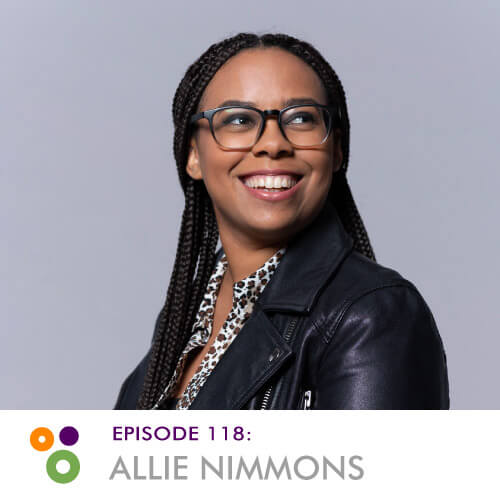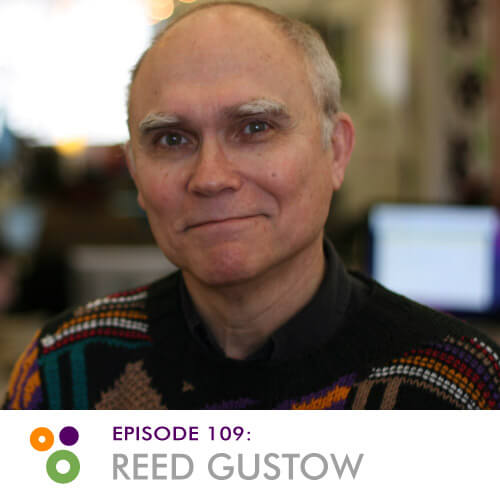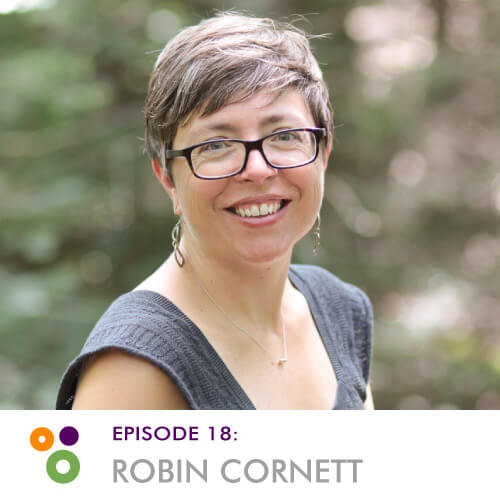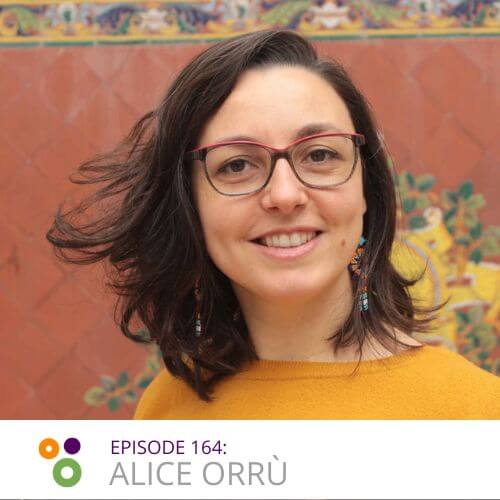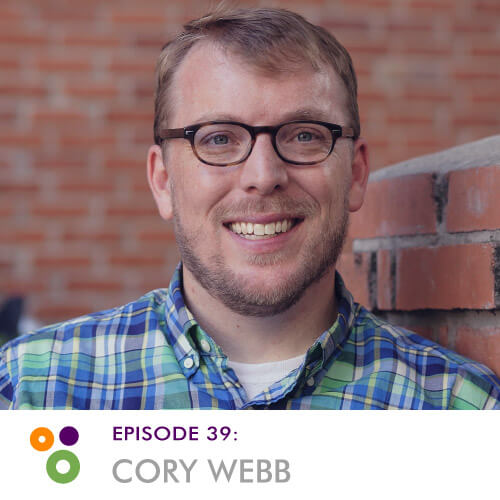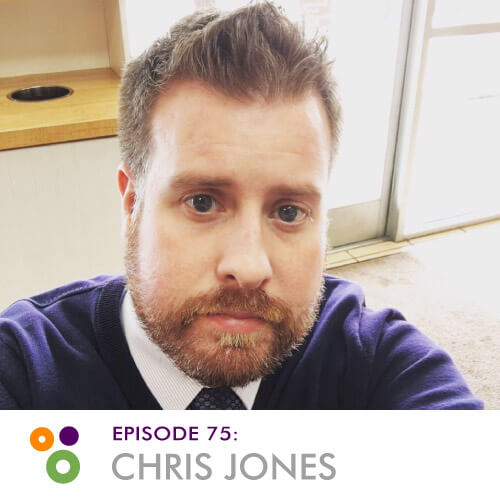Episode 157 – A Chat With Aurooba Ahmed
Podcast: Play in new window | Download
Subscribe: RSS
Aurooba Ahmed is a freelance WordPress developer and contributor.
Show Notes
Aurooba’s Blog: https://aurooba.com/
Twitter | @aurooba
Episode Transcript
Topher: Hey everyone, my name is Topher.
Cate: And I’m Cate.
Topher: And this is Hallway Chats. Before we get going, I want to thank our sponsors at Nexcess, a Liquid Web brand. They have some new tools for eCommerce that really make them stand out from other options. WooCommerce automated testing, Sales Performance Monitor, and Plugin Performance Monitor give you data you need to stay powerful and profitable. And they’re free with every Nexcess plan.
Okay, our guest today is Aurooba Ahmed. Welcome.
Cate: Hey, Aurooba.
Aurooba: Hi. Thanks for having me. Hey, Cate.
Topher: Did I get the… not accent… the emphasis, right, on your last name? Is it Ahmed?
Aurooba: Yeah, that works. I would say that it’s more about the emphasis on the first name where it’s Aurooba, not Aruba. It’s A-U.
Topher: Ah right. It is an A-U.
Aurooba: It is.
Topher: I’m looking at the spelling. For those of you that are just listening, it’s A-U-R-O-O-B-A.
Aurooba: It’s pretty common.
Topher: So no relation to the island.
Aurooba: No relation at all. And yet I have heard that song many, many, many times.
Topher: I don’t know the song.
Aurooba: Aruba, Jamaica, oh I wa-
Topher: Oh, the Beach Boys. Yeah, yeah, yeah.
Aurooba: My gym teacher, the first time he read my name off of the attendance list was like… He didn’t read my name. He just sang the song.
Cate: That’s got to be exciting.
Aurooba: It gets old after a while but I love it.
Cate: I mean, it is a positive association. I mean, I would happily be associated with a Caribbean island where people go on vacation and have a good time. So I mean, there are worse facilities, yeah.
Aurooba: 100%. Very true.
Cate: And do you live in Aruba? Like are you in Caribbean island?
Aurooba: Oh, I would love to go there one day, but I’m in Calgary by the Rockies in Canada.
Topher: That’s cool.
Cate: And is it warm and tropical there?
Aurooba: Only in my mind.
Cate: Right.
Topher: We realize the Rockies are close to Calgary.
Aurooba: Oh, it’s like less than an hour away from my house. I can see the mountains from my bedroom window.
Cate: Nice. Awesome.
Aurooba: Mm-hmm. But it is not tropical here. It is very cold right now.
Topher: One of the first things we’re going to ask is who you are and where you live and stuff like that. So now we know you’re in Calgary.
Cate: And we know she is Aurooba.
Topher: Yes.
Aurooba: That’s true.
Topher: Have you always lived in Calgary? Are you a Calgarian?
Aurooba: Oh, no, I am not a Calgarian, although I met a Calgarian yesterday. They are a rare breed. I was born in Pakistan, but I never lived there. I spent my childhood in Saudi Arabia in a small port town called Yanbu by the Red Sea. And then we moved to Toronto, Canada, when I was 10.
Topher: You even say it like Torono.
Aurooba: Oh, I did live there. We moved there when I was 10. And then my dad got a job with an oil company in Alberta in a small town called Fort McMurray, where the oil sands are. And we moved there when I was 15. And then I went to university in Edmonton. Then my parents moved to Calgary partway through my university career. And eventually I also ended up here because I want to be close to them.
Cate: Yeah, that sometimes happens. It must have been fun moving from Toronto to Alberta when you were 15. I’m guessing it was-
Aurooba: It was a culture shock. Fort McMurray at the time was not a place that you would equate with diversity.
Topher: I’m sorry, did you say Canada?
Aurooba: Yeah. I mean, it was small but rich because of the oil sands. Then my family was, I guess, part of this influx of people who were coming there because of all the jobs, and so then suddenly became very, very diverse and very, very quickly.
Topher: Oh, that’s cool.
Aurooba: So it was a very big adjustment for the city, it was a big adjustment for us, for everyone. It was very interesting.
Cate: Again, another fun thing to be dealing with at 15.
Aurooba: So fun. The stories I could tell.
Cate: I will buy you a drink and you can tell me all about it.
Topher: I’ll ask about the diversity of Canada, but I have to say Toronto was the most diverse city I’ve ever been in.
Aurooba: It is very, very, very, very diverse. Before the pandemic, we went to Toronto at least once a year. We have a lot of family there. I go once a year and yet it is so drastically different every single time. I mean, in terms of the people-
Topher: From the previous time you mean?
Aurooba: Yeah, yeah. Every time it’s like something has changed in a way that is so obvious that it’s like, “Oh, but it has only been a year. How has this happened? I do not know. This does not compute.” So it’s a pretty cool place.
Topher: That’s cool.
Aurooba: Yeah.
Topher: I have wanted you to do here, as I say, for a long time. And I totally respect why not. But the story is interesting. And so-
Cate: No shame. There’s no shame here.
Topher: No shame. Not at all.
Cate: There’s a lot of things he wish I would have done over the last 25 years that I haven’t done, and I feel no shame about it whatsoever.
Topher: So how did you get into WordPress.
Aurooba: I already knew how to code in HTML and CSS. But then when I was in grade 11, my dad started up a nonprofit in Fort McMurray, and they need a little website. And he needed to be able to edit it himself, at least a little bit. And so I was like, “There must be a way this can happen.” So I went googling and I landed on WordPress, and it was pretty easy to install. And I made a child three from whatever the default theme was back in 2008, and off we were. That’s how it all started really.
Cate: It’s so funny how many WordPress owners end up with a very similar story. You know, it was you kind of figured it out one day, and all of a sudden you have a career. It’s just great.
Aurooba: I played with it all through high school.
Topher: When did it move from messing around in high school to a career? Like I only met you two years ago?
Aurooba: 2019. Yeah.
Topher: Yeah. And you’ve been in the community for a while, or at least working with WordPress.
Aurooba: Yes. Those are two different things.
Cate: They are, actually.
Aurooba: Yes. Ah, well, when I was in university, I also helped build one of the residents’ association’s website with WordPress. And that was when I really like sort of started to understand some of the power of WordPress and what it could do. Because of it, I ended up freelancing with a few companies while I was in school, just building sort of internal websites for them.
And then when I finished being done in university, I decided that I just wanted to freelance and I just did WordPress. So that would be 2014.
Topher: That’s cool.
Cate: Have you always worked for yourself then?
Aurooba: Correct. I have had three summer jobs. And that’s about as far as it goes for working for someone else?
Cate: That’s really phenomenal. It’s great that you’ve been able to build your own business the way that you wanted to build no matter where you’re living. That’s the thing I love about WordPress. I could care less about the software, I could care less about coding anything, but just how many people can build a life that they want regardless of where they’re living, it’s just amazing.
Aurooba: It was one of the primary reasons I did it. Because for many, many reasons, I decided that I wanted to always be remote. At a time when remote was not a thing, I wouldn’t have said remote then. I just was like, “I want to work from wherever my computer is.” And the only thing I could think of was building websites or doing some sort of software development and not working for anyone because I didn’t know any companies at the time that did distributed work. I mean, there were some, but I didn’t know them.
Cate: No. Even for us, we started out in 2010, we left a paid job to freelance because we didn’t know any companies that hired WordPress people. And it was about 2014 only we found XWP and they were kind of the first one that we knew of that hired remote people to work on some…
Aurooba: Cool.
Cate: Yeah, it’s been a huge change. But it’s a far more recent change than I think people realize.
Aurooba: And yet there have been people who were remote before then too. It just it wasn’t mainstream enough to be easily discoverable.
Cate: Yeah, exactly.
Topher: So when did you start engaging with the community?
Aurooba: It was an accident. I moved to Calgary and I was trying to make some friends. And I found this organization here in Calgary called Chic Geek. They basically support women in tech. And I did a presentation there on Git because they really, really encouraged me to do so and I was trying to get better at public speaking and put myself out there a little.
And there was someone there who happened to know about WordCamp Calgary. So they’re like, “Hey, you should do this talk at WordCamp Calgary. It’s Coming up.” So I applied, but I had no idea what WordCamp was. I didn’t know this was like a thing that is everywhere.
Aurooba: And I spoke there. And then I met this really awesome person called Christina Workman, who was in the community and introduced me to the community in Make WordPress. That was like late 2018, early 2019. It was totally by chance.
Cate: And you stayed. So I’m guessing that you found some things you like about it. I mean, we all know there are things to not like about it. The community sadly is full of people and people are terrible. I know this. I’m a people. I’m terrible. But occasionally-
Aurooba: I think that’s every community, right? Like once you get to a certain size, you’re very, very… But no, I always stayed. I think that when I first started contributing, I didn’t know what it meant to really contribute, aside from like being part of WordCamp. And I would say yes to things because I didn’t want to be mean or rude.
And four months later, I burnt out so hard that I basically just disappeared. And then I tried to come back in late 2020, and then work put me out. And I was always sort of there but couldn’t be there as reliably or consistently as I want it to be.
And now I have, you know, grown a little, I’m a little bit more experienced in trying to balance work and contributing, and also like my life. So seems to be working out a little better this time.
Cate: Yeah, well, and I think it’s kind of funny to say. I’ve been there myself. So 2019 after WordCamp US, in fact, I almost didn’t go to WordCamp US, I almost just kind of left the community right there. It just was feeling really overwhelmed and had a really negative year. And it just was one of those spots where it was like, “Really can’t I do something other than this?” But stayed, and you know, then hit some other walls as well.
But I think hitting those walls, burning out every once in a while, it’s kind of part of the learning process. You don’t know what your boundaries are until you test them a little bit.
Aurooba: I agree.
Cate: And if you don’t push a little, then you’re going to miss some opportunities you’re going to be sad about because you didn’t try. So it’s really, really hard, though, to find that balance of what’s enough and what’s too much. And then as we grow, like you said, as people, and our lives change, the opportunities we have available are different.
Aurooba: Yeah. And I think what I’m learning is if I have 100% capacity, I should be looking to fill at most 80% of my capacity because I still need the 20% to recharge, process, rest, and have the wiggle room in case things happen that I don’t have plan because life just throw a few right hooks sometimes.
Cate: Yeah, that’s exactly it. I was recently asked about like how do you manage a community or how do you plan an event? And one of the things I said is, you know, plan for the known unknowns, like the things that generally go wrong, because the unknown unknowns are going to bite you. Like there’s going to be this whole list of things that will go wrong that you never thought of. And so you’re so right about leaving some space for that to happen.
Aurooba: Hard one lesson. I’ll tell you that.
Cate: But common.
Aurooba: I think it’s one of those things-
Topher: And now it’s time to speak about it at WordCamps. So that would be funny too.
Aurooba: It’s so funny. I think we all know this intellectually. We’ve heard other people talk about it. But until you experience it yourself, it doesn’t quite sink in. I commend the people who listen to other people and it sinks in right away. I am not one of those. I have to experience it.
Cate: Me neither.
Topher: It can happen to me.
Aurooba: Or, “You know, it can’t be as bad as this person to say. They’re just exaggerating for a fact. Mm-mm.”
Topher: I’m stronger than that. I would deal with it fine.
Aurooba: My life is not that messed up. Crazy things don’t happen to me. What? No.
Cate: I just can’t not laugh through this because it’s such a… Fortunately, I have reached the point where I’ve just accepted that my life is messed up and it will happen to me and I’m just going to try to enjoy the ride.
Aurooba: The thing is you’re not alone. Your life is this interconnected web with all these other people, and you can’t predict what they’re going to do. And sometimes you can’t even predict what you’re going to do. So that’s like a whole thing itself. But put that all together and that’s-
Cate: And then you have power outages or sickness or, you know, like all of the things that are just completely out there.
Topher: All right, worldwide pandemic.
Cate: Right.
Aurooba: Oh, yeah, yeah. Ruining all my plans left and right.
Topher: All right. I’d like to ask you some questions about not WordPress. What do you do outside WordPress? Do you ride in the stampede or anything? Have you ever been?
Aurooba: Yes. Fun fact, I have never been to Calgary Stampede despite living here for nearly five years now. I’ve just never been. It’s a time when the town goes a little crazy and I prefer to not be where the crazy is.
Cate: Topher and I both grew up in small towns that had big events. Not nearly as big as that but they had that one weekend that something happened and none of the locals attend. Unless you have a job there, you just stay home or you go on vacation that weekend. Because of the insanity of everybody coming to town, it’s just insanity.
Aurooba: It is. It is. I think that in the locals that do go—and lots of locals do—in my group, we tend to think of it as like that’s where the single people go. And I am not single and also have never particularly had interest in large turkey legs. These are not things that are part of my interests.
My interests are more the mountains and going there and enjoying the time, enjoying outdoorsy stuff that isn’t necessarily like in downtown, with us in a city. Not that I don’t like being in a city but I’ve lived in such a big mix of types of towns that the thing that I feel is a constant in my life is nature. And I enjoy that.
Topher: Do you ski?
Aurooba: I do ski sometimes. I wouldn’t say that I’ve skied very recently. I’m more of a hiker. I like to hike. Not in the winter. I don’t really do winter sports in the winters, I read books.
Cate: Well, you get some pretty substantial winter up there. I mean, it’s not like Michigan winter where it’s kind of a balmy 30 most of the time. I mean, you guys get some pretty cold weather.
Aurooba: We do. I’m sorry I don’t know though Fahrenheit version. It’s all Celsius on my end. But the thing about Calgary is we have schnucks. Because of the mountains, it never stays super cold for very long. It’ll be really, really cold, and then it’s going to be warm and I’ll be wearing a hoodie for like a week. And then it’ll be super cold and I’m wearing a winter jacket and boots because now we have this much snow and it’s then it melts again.
So it’s very up and down, which means I get a lot of migraines in January and February. But aside from that, I do enjoy that there are small moments where I can go outside and not have to wear a jacket. That’s nice.
Cate: That’s similar in Michigan here because we get to kind of the jet stream comes down from you to us. And so about two days later, whatever you were dealing with we’re dealing with. But generally, again, not quite so bad because it’s not quite so cold.
Aurooba: Yeah. The mountains just really wreck things a little bit. They’re great. I love them. They’re majestic. They are very stable, the world around them. They create instability of weather.
Topher: Oh, cool. Cate, I interrupted you a few minutes ago. You were going to say something. Do you remember what it is?
Cate: That’s okay. I was just going to ask what kind of things that she likes to do out in the mountains. Again, Michigan, not a lot of mountains. We have a few. They’re far away and I don’t go there. And just how much you have enjoyed being so close to the Rockies. It’s a very unique place to be.
Aurooba: I feel very privileged. It is the kind of beauty that doesn’t seem to ever get old. You know, there’s really beautiful lakes and I have definitely not seen all of Banff or all of Jasper, or any of the Rockies. You know, they’re just too big.
But mostly we hike, we take picnics out there, go swimming in the lakes. That kind of thing. Very, very simple. Nothing like super crazy or fancy. I’m not rock climbing or jumping off of cliffs. But I like to just take in the beauty and appreciate it and walk around. I love walking so hiking is like the next thing.
Topher: That’s cool.
Cate: That sounds lovely. I can’t wait. We need to come visit.
Aurooba: You have been planning to visit for a while now.
Cate: Yes. Well, there was a pandemic.
Aurooba: When is this trip going to happen?
Topher: We’ve only known you outside pandemic for like a month, two months.
Aurooba: Yeah. That’s true, that’s true. Most of our interaction has been really just during the pandemic. But things are hopefully going to ease up a little and it’s going to… Maybe the variance will stop being so uncool.
Cate: Invariable.
Aurooba: Yeah, yeah. And then you can do your trip.
Cate: Yes, exactly.
Topher: Do you know anything at all about a WordCamp Calgary in the future?
Aurooba: I think that for us our community is fairly small. So it doesn’t make sense for us to do a virtual WordCamp because we really value the in-person aspect of it because it’s a small community. So the next time will be when we can meet in person. And I don’t think that’s going to be this year. Because although technically we’re allowed, I think we as a team don’t feel comfortable with.
Cate: And I’d say we feel similar in Grand Rapids. We have a really strong group but we’re just starting to have a conversation about going back to in-person meetups and whether we’re ready for that, you know, move that to or expand that out to a WordCamp. And that’s even so much more so. I don’t know that I want to manage that.
But that said, you are helping to plan WordCamp US, which hopefully will be in-person in San Diego, where it is not going to snow. And we really appreciate you coming on board for that.
Aurooba: I’m really excited about it.
Cate: You’ll be leading our web design team. Just really thrilled.
Aurooba: Yeah, it should be really cool. I’m really excited about the team that’s being put together and really looking forward to what we can make out of this first in-person event after the pandemic. Wow. Like very intense in a way.
Topher: Are you a designer?
Aurooba: No, I’m not a designer.
Topher: Oh, okay.
Aurooba: I am a developer. It’s the design and web team. So we’ll be creating the website.
Cate: There’s a slash in there but I didn’t speak. Unfortunately, we have given her a couple of good designers to help her not have to be a designer.
Aurooba: Yes. And I work with designers all day so I have lots of thoughts and I have a good eye for design but I prefer not to be doing the design. Implementation is where I shine.
Cate: Which is exactly what we need as a lead in that category.
Topher: I know how to use Photoshop, but I can’t make it do pretty things.
Cate: And occasionally we take away Photoshop. Like he’s just not allowed to design anything.
Aurooba: Oh, that’s funny. Hey, Topher, we can be implementation buddies.
Topher: That’s right.
Cate: Exactly. Exactly. I remember the last website I think he designed himself was for an engineering company. And they wanted something really basic. And it was basically like a wireframe of a website. And it fit him so well. It was really perfect for what they needed but it was like the stick figure of designs.
Topher: They were engineers.
Aurooba: I mean, that’s close to what my personal website is right now. It’s as simple as I could make it. I made it when I went solo in 2019. There was a partner before then. And I was like, “I need something.” So I just threw this thing together. And it’s been there. But I am hoping to refresh it with a professionally designed something later this year or early next year.
Cate: I think a good point is that you don’t have to start with something super fancy. In fact, you’re probably better off not starting with something super fancy. And if you do a good job of displaying your skills and competence, you can always grow into something more down the road.
I know a lot of people get stopped because they don’t have a huge budget for development or design or they don’t personally have the skills to do it. And that’s sad. That’s a mistake. That’s a loss to the whole community.
Aurooba: I agree. I mean, that’s the great thing about WordPress, right? You could be no code or you could be all the code. And you can build things with the free resources that are out there and get yourself something that is not bad, some even pretty good, with a little bit of effort. That’s all you really need.
Ultimately, this is what I’m always harping on to my clients. It’s not about the design. It’s not about the flashiness. It’s about your content. Get the content right. Get the content right. And the design should support it should highlight it, but it is second to your content.
Cate: And I am so delighted to hear you saying that because I am a content person. It’s so true. People forget about formatting their content. I mean, the content is the biggest picture people see on your page and how they can comfortably interact with it, whether it’s divided up well or there’s places for your eyes to rest. It really makes a huge difference.
Aurooba: Exactly.
Cate: So I just love you for that a little bit more.
Aurooba: The web is a medium for importing information, not importing design. I mean, design is really great and it has a very powerful impact on making information more easily accessible, and understandable and spreading it. But that is its job to do it for the information. If there’s no information, the design can’t do anything.
Cate: So I’m curious to know, as an individual and someone who’s been around for a while, as an experienced individual, how do you feel about Gutenberg and the move to full site editing. It’s completely reasonable, though. Whatever your opinion is. This isn’t you have to have one or the other. I’m just curious if it’s been an asset to you, if there are more drawbacks in its worth or how you’ve used it or not.
Aurooba: I think that the Block Editor and the Gutenberg movement, as we could say, is generally a really good thing. I think it’s the right move for WordPress. I think it’s going in the right direction. Do I have some reservations around the melding of the visual with the content when you’re creating it? Yes, I definitely have those reservations. I think a lot of people have those reservations. And I think that they are worth bringing up and bringing up again, until they get the attention they deserve.
But you know, I think it is valuable to be able to see more of what you’re working with in the editor rather than having to go and preview your site constantly. Because I don’t know, a lot of people do write and create their content straight in the WordPress editor and I think more of them do so now. But that a lot of people who are doing really heavy content things are not usually going to draft their content in there.
And that might change when the collaborative stage of Gutenberg comes into play. But right now, I think that it’s a good thing that we have some melding of the visual with the content, as long as we don’t forget that visual is not everything. Right now it feels like visual is more important than the content itself. And that is something that is not true. We’re content first. It’s the web, like I just said. So that’s really important.
But overall, I think that design and content is modular. It’s modular no matter how you approach it. And that’s something that the Block Editor and Gutenberg really shines in, because it is meant for modular things, whether that’s content or design. And that power, putting it in the hands of end-users but also more experienced people, I think that it can lead to some very cool and very powerful things. So I like it for those
nuances.
Cate: I would agree completely. I’m someone who’s just moving into creating content in Gutenberg versus creating it all in Google Docs and moving it over. I couldn’t trust Gutenberg before to really flow nicely when I was writing. It’s still not as comfortable for editing, like there’s an editing element that’s missing to it. Like you can do revision… Anyway, Google Docs is better.
Aurooba: Yeah, totally.
Cate: But I have found myself enjoying working in Gutenberg more as it’s growing. Like you said, the modularity does have a huge impact. It is nice just be able to move things around a little bit. And the whole concept feels very open source. The idea that we can continue to adapt it and adjust it and have the conversations about it so that we work as a group to move it into something that is better for the group, best for the group. I mean, nothing is perfect but-
Aurooba: No. That’s the power of open source. I mean, think about Google Docs. Google Docs is proprietary software that is controlled and thought of by a small group of people as compared to how people use it. Now, do they take feedback from their end users? Of course. But those end users are not necessarily directly involved in figuring out, planning, and implementing those features.
So when you have something like the Block Editor that does have that aspect, what you’re going to get out of it ultimately is stronger, more user-tested, and just better for everyone. And everyone’s use cases.
Right. So long term I think this is great. I think that obviously it is still a piece of software that is in development, so there are bound to be hiccups. But I use it in all my projects. I don’t do any non-Block Editor projects at WordPress anymore. So that says something.
Cate: Yeah, it really does. And I do think we have to remember that projects like this, particularly if we want to embrace them as open source, have to have a growth period. Kinda like a child where, again, going back to being 15, you know, not everybody’s at the same place when they’re 15. Some of us are awkward and just barely making it through. So projects will be similar. The head will grow faster than the feet, the feet will catch up.
Aurooba: Yeah. It’s a weird teenage phase for the Block Editor.
Cate: Right.
Aurooba: Right? Everything’s awkward. Your voice might be changing and there’s weird things happening to you and you don’t really know how-
Topher: There’s no documentation.
Aurooba: Exactly, exactly. And even though other people might have experienced the same thing, they can’t adequately explain it to you.
Cate: Yeah, exactly.
Aurooba: Exactly. There is no manual, unfortunately. Or at least not a very good one.
Cate: No.
Topher: All right. We have been at this for about a half an hour now, so it’s time to wrap up.
Cate: Oh, I’m disappointed. I thought you were going to say that was a quiz or that we’re going to spin the wheel.
Aurooba: Wheel of Fortune.
Topher: Wheel of morality, turn turn turn.
All right, I’m going to read the outro here. This has been an episode of Hallway Chats, a part of the HeroPress Network. Your hosts were Cate and Topher DeRosia. We’d like to thank Sophia DeRosia for the music and Nexcess for hosting our network. If you liked the episode, please subscribe and mention us on social media.
Cate: Thanks so much for joining us, Aurooba.
Aurooba: Yeah, thanks for having me, both of you.
Cate: I feel like it’s more of a put up with. Thanks for putting up with us for a half an hour.
Aurooba: I am not okay with you being rude to my friends like that. So no, you cannot say this.
Cate: Oh, yeah. Thanks for coming, Aurooba. We really appreciate you talking with us and sharing your experiences, of sharing the mountains. And again, truly can’t wait to get up and see you in person.
Aurooba: Yes. Well, I think we’ll see each other before then.
Cate: That is most likely true.
Topher: It might wait till San Diego. When is that? September?
Cate: September, the first weekend.
Aurooba: Mm-hmm.
Topher: Which isn’t that far away.
Cate: We don’t use words like that. Nobody is talking about that right now.
Aurooba: I was talking about that yesterday with my partner. I was like, “This is very close.”
Cate: It’ll be fine. It’ll all be fine.
Aurooba: It will be fine.
Cate: All right.
Aurooba: That doesn’t change the fact that it’s very close.
Cate: Oh, goodbye, Aurooba.
Aurooba: Goodbye. Have a good rest of your day.
Topher: Bye-bye.

